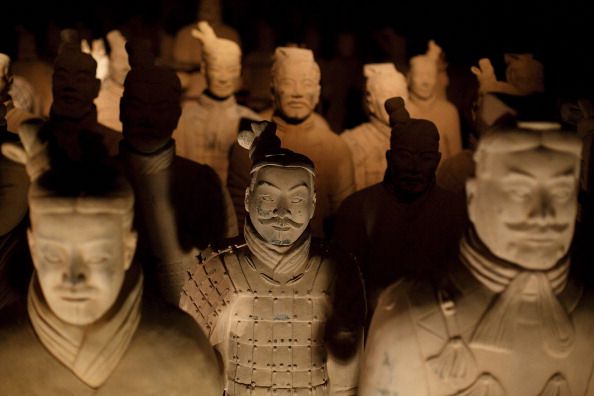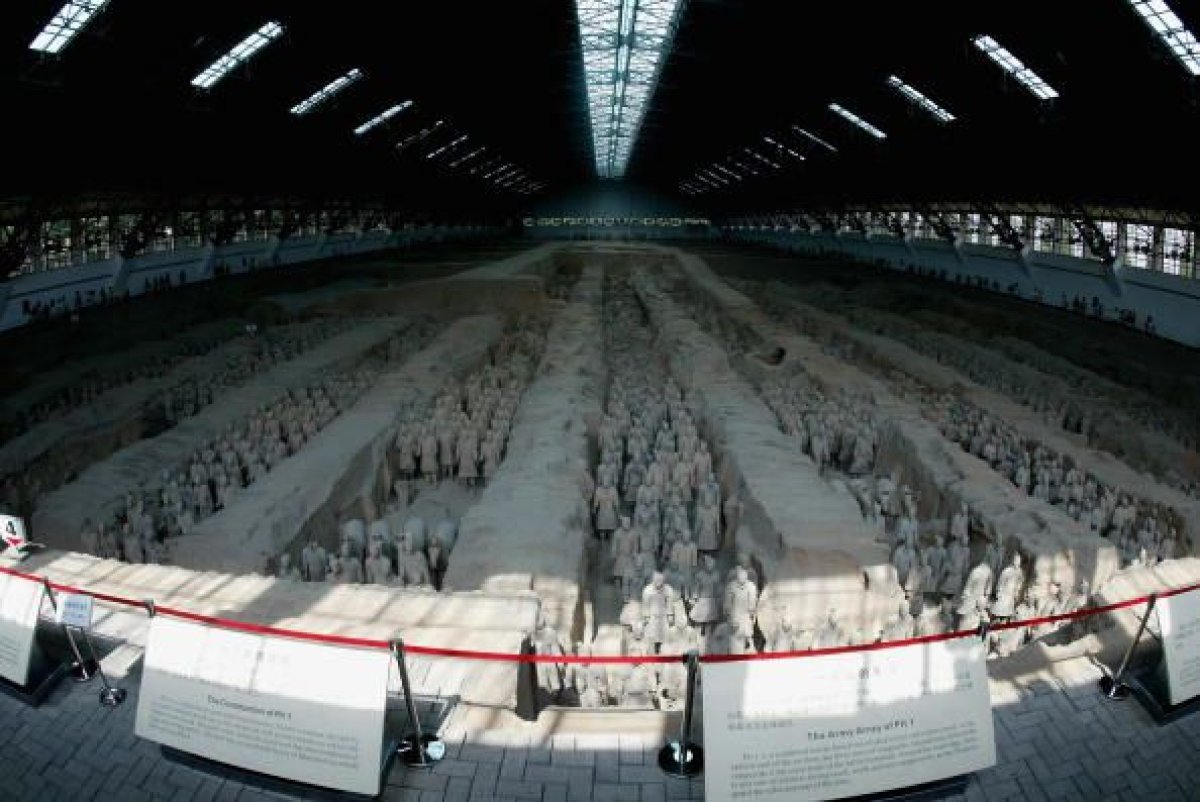
The first emperor of China was consumed by an obsessive quest for immortality. New archaeological findings reveal that Qin Shihuang, who marked the beginning of the Qin dynasty when he took power in 221 B.C. and who created the legendary Terracotta Army, forced his subjects into a nationwide search for a mythical elixir of life.
Researchers discovered the details of the search inscribed on 36,000 thin pieces of wood connected by strings, which preceded paper in China as writing material, according to Channel News Asia. The slips were first discovered in the bottom of a well in central Hunan province in 2002. Now, archaeologists studying them say they found an executive order by the emperor to find the elixir and "assorted awkward replies," as the BBC put it, from members of various regional governments attempting to explain their failure to do so.

"It required a highly efficient administration and strong executive force to pass down a government decree in ancient times when transportation and communication facilities were undeveloped," Zhang Chunlong, a researcher at the Hunan Provincial Institute of Cultural Relics and Archaeology, recently told Xinhua News Agency.
Zhang said the directive reached even the most remote villages in the country. Among the embarrassed responses following failures by other villages was one from Langya, a community located near the sea in what is today the eastern Shandong Province, which presented the emperor with an "herb collected from an auspicious local mountain" in the hope that it would satisfy his demands, according to Xinhua News Agency.
It appears that some even believed such an herb would be able to bring the emperor's terracotta army to life, according to International Business Times. Zhou Qi, an assistant research fellow at China Academy of Chinese Medical Sciences, told Xinhua News Agency that the inhabitants of that time were practiced in a variety of holistic treatments including acupuncture and moxibustion (burning dried plants over the skin).
Zhang told Xinhua News Agency that the writings should allow for new insights into early Chinese medical practices, as well as the historical timeline of the emperor's rule. Qin Shihuang's terracotta army, discovered by archaeologists in 1974, comprises some 8,000 soldiers and 100,000 assorted relics, according to International Business Times. The tomb itself might have been left hollow, symbolically leaving room for the emperor's soul.
The emperor's reign was known for its brutality, according to Xinhua News Agency. He ordered widespread forced labor to construct not just the underground mausoleum that contained his terracotta army, but his massive palace as well as China's famous Great Wall. Quest for eternal life notwithstanding, he died in 210 B.C. after ruling for 11 years—probably after ingesting mercury pills, which he believed would make him immortal. The Qin dynasty ended shortly after, in 207 B.C.
Uncommon Knowledge
Newsweek is committed to challenging conventional wisdom and finding connections in the search for common ground.
Newsweek is committed to challenging conventional wisdom and finding connections in the search for common ground.
About the writer
Kastalia Medrano is a Manhattan-based journalist whose writing has appeared at outlets like Pacific Standard, VICE, National Geographic, the Paris Review Daily, ... Read more
To read how Newsweek uses AI as a newsroom tool, Click here.








